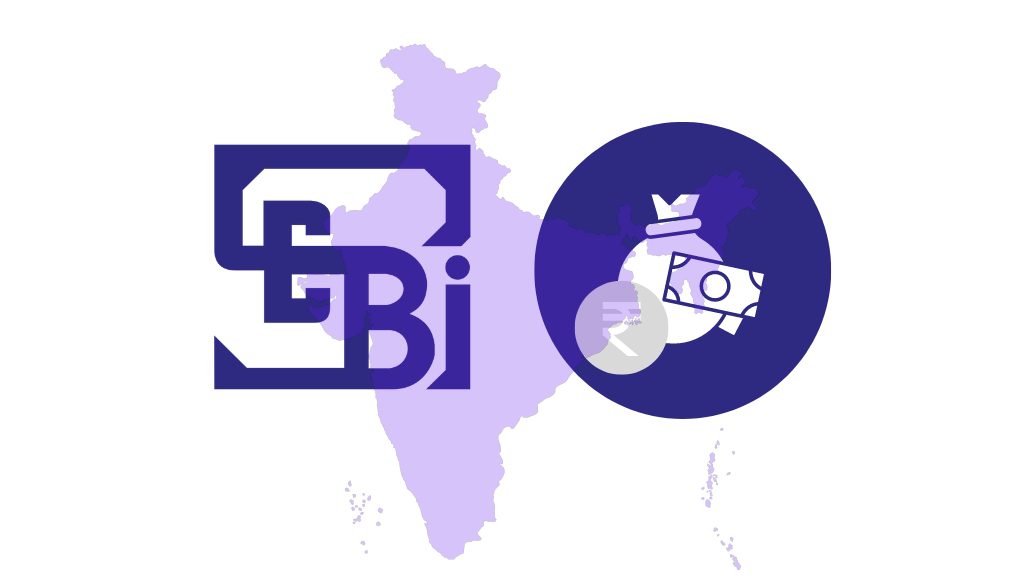| Type | Description | Contributor | Date |
|---|---|---|---|
| Post created | Pocketful Team | Jul-30-24 | |
| Add new links | Nisha | Mar-01-25 |
Read Next
- What is the 15*15*15 Rule of Mutual Fund Investing?
- Mutual Fund Factsheet: Definition And Importance
- XIRR Vs CAGR: Investment Return Metrics
- Arbitrage Mutual Funds – What are Arbitrage Funds India | Basics, Taxation & Benefits
- Hybrid Mutual Funds – Definition, Types and Taxation
- Top AMCs in India
- Active or Passive Mutual Funds: Which Is Better?
- Liquid Funds Vs Ultra Short Fund: Which One Should You Choose?
- Debt Mutual Funds: Meaning, Types and Features
- Equity Mutual Funds: Meaning, Types & Features
- What are Small Cap Mutual Funds? Definition, Advantages, and Risks Explained
- What is PSU Index? Performance, Comparison, Benefits, and Risks Explained
- Bandhan Long Duration Fund NFO: Objective, Benefits, Risks, and Suitability Explained
- Smart Beta Funds: Characteristics, Factors, Benefits, and Limitations
- The Rise of ESG Funds: Overview, Growth, Pros, Cons, and Suitability
- Mutual Funds vs Direct Investing: Differences, Pros, Cons, and Suitability
- A Comprehensive Guide on Mutual Fund Analysis: Quantitative and Qualitative Factors Explained
- NFO Alert: PGIM India Large & Mid Cap Fund
- ELSS Funds: 3 Years Lock-In Worth It?
- Regular vs Direct Mutual Funds: Make The Right Investment Decision
- Blog
- mutual funds
- who regulates mutual funds in india
Who Regulates Mutual Funds in India?

In the fast-paced world of finance, selecting an investment option can be difficult. Mutual funds, which combine investor funds to invest in a variety of assets, present an attractive option. It is extremely important to maintain investor confidence in the markets and ensure that these funds function responsibly and within the laws. The Securities and Exchange Board of India (SEBI) is responsible for regulating India’s securities market, including mutual funds.
This blog explores SEBI’s important function in overseeing mutual funds, protecting the interests of investors, and promoting a robust investment environment.
SEBI Regulates Mutual Funds in India
Imagine investing your hard-earned money in a mutual fund, only to later discover that it was mismanaged. Therefore, it is important to protect investors and ensure fair and transparent functioning of the industry. The Securities and Exchange Board of India (SEBI) regulates the mutual fund industry in India and performs the following functions:
- SEBI establishes rules and regulations to protect the interests of investors.
- The regulation aims to restrict fund managers from prioritizing their interests and upholding the integrity of the market.
- SEBI regulations are designed to promote the development and expansion of the mutual fund industry.
These regulations can help authorities create and maintain a safe and trustworthy investment environment, promoting investor confidence and stability in the financial markets.

Important Regulations and Guidelines
SEBI has established several guidelines to protect investor interests and maintain transparency. Some of these are listed below:
- SEBI issues a comprehensive set of regulations that outlines the framework for establishing, operating, and regulating mutual funds in India.
- It outlines the norms for mutual fund advertisements and marketing materials to ensure fairness.
- SEBI regulations require mutual funds to disclose their holdings periodically, which enables investors to make informed decisions.
- SEBI decides the roles and responsibilities of different entities in a mutual fund, such as sponsors, trustees, AMCs, custodians, and registrar & transfer agents (RTAs).
- SEBI requires mutual funds to have a strong system in place for addressing investor grievances and measures to prevent insider trading and fraudulent practices.
- SEBI mandates clear and comprehensive disclosures in offer documents and regular reports. This consists of information on investment objectives, fees, risks, and performance.
Role of AMFI
The Association of Mutual Funds (AMFI) is responsible for regulating the mutual fund industry in India under the supervision of SEBI. The key roles of AMFI are listed below:
- AMFI focuses on ethical conduct among AMCs and intermediaries, which helps minimize fraudulent activities and ensures fair treatment of investors.
- It acts as a bridge between SEBI, the government, and the mutual fund industry.
- It facilitates transparency in the mutual fund industry by implementing operational guidelines for all AMCs.
- AMFI distributes important information regarding mutual funds on its websites, such as the daily NAV and the performance of all mutual fund schemes.
- AMFI issues a unique ARN (AMFI Registration Number) to mutual fund distributors. ARN certifies that the distributor has knowledge of dealing in mutual funds.
- It is also involved in making mutual funds popular through mass media.
Read Also: SIP in Stocks vs SIP in Mutual funds?
History of Mutual Funds
The year 1963 marked a milestone in the history of mutual funds in India when the Unit Trust of India was established through an Act of Parliament. UTI operated under the regulatory supervision of the Reserve Bank of India.
In 1964, UTI introduced its first mutual fund scheme called “Unit Scheme 1964”. This stage laid the foundation of mutual funds, encouraging retail investors to invest in the stock market.

In 1987, The government permitted the public sector banks, Life Insurance Corporation (LIC), and General Insurance Corporation (GIC) to launch mutual fund schemes.
The arrival of new competitors intensified the competition, and investors had access to various new schemes catering to various risk profiles and financial objectives. The increased complexity resulted in the establishment of SEBI, which started overseeing the mutual fund industry, except UTI, initially.
Structure of Mutual Funds
As per SEBI, the structure of mutual funds in India is three-tiered and consists of the following entities:
- Sponsor: The sponsor is the initial promoter of the mutual fund. They establish the trust and appoint a trustee and an asset management company (AMC). Sponsors are usually banks and financial institutions. For example, SBI is the promoter of the SBI mutual fund.
- Trust and Trustee: The mutual fund operates as a trust. The trustee is like a legal guardian for the fund’s assets. They make sure that AMC works in the interest of the investors.
- Asset Management Company (AMC): AMC manages the mutual fund. They employ fund managers who make investment decisions based on their research and invest money collected from investors into different asset classes.
In addition to the three main tiers, other participants also play a key role in the functioning of the mutual fund.
- Custodian: It holds and safeguards the securities of a mutual fund.
- Registrar and Transfer Agents (RTA): They keep a record of all investors, manage and provide periodic investment statements, and facilitate transactions such as purchase, and redemption of mutual fund units.
- Distributors: They sell mutual fund units to investors. These intermediaries recommend mutual funds to investors and, in return, get commissions from the AMCs.
Read Also: Mutual Fund Factsheet: Definition And Importance
Conclusion
To wrap it up, SEBI plays an important role in regulating India’s mutual funds. Investor-centric regulations and emphasis on market integrity ensure a fair and transparent investment environment that benefits investors. Understanding SEBI’s functions and guidelines will empower investors to make better decisions and navigate the mutual fund landscape easily.
| S.NO. | Check Out These Interesting Posts You Might Enjoy! |
|---|---|
| 1 | What Is An IPO Mutual Fund? Should You Invest? |
| 2 | Mutual Fund Taxation – How Mutual Funds Are Taxed? |
| 3 | Is Your Mutual Fund Investment Safe? |
| 4 | What is an Open-Ended Mutual Fund & How to Invest in it? |
| 5 | How to Cancel Mutual Fund SIP? |
Frequently Asked Questions (FAQs)
How do I start investing in mutual funds?
You can invest in mutual funds through an AMC or a registered distributor after completing the KYC procedure.
Who regulates mutual funds in India?
The Securities and Exchange Board of India (SEBI) regulates mutual funds in India.
What are the different types of mutual funds based on asset class?
There are various types of mutual funds depending on the asset class, such as equity funds, debt funds, and hybrid funds.
When did mutual funds start in India?
The journey of mutual funds in India began in 1963 with the establishment of the Unit Trust of India (UTI).
Disclaimer
The securities, funds, and strategies discussed in this blog are provided for informational purposes only. They do not represent endorsements or recommendations. Investors should conduct their own research and seek professional advice before making any investment decisions.
Article History
Table of Contents
Toggle